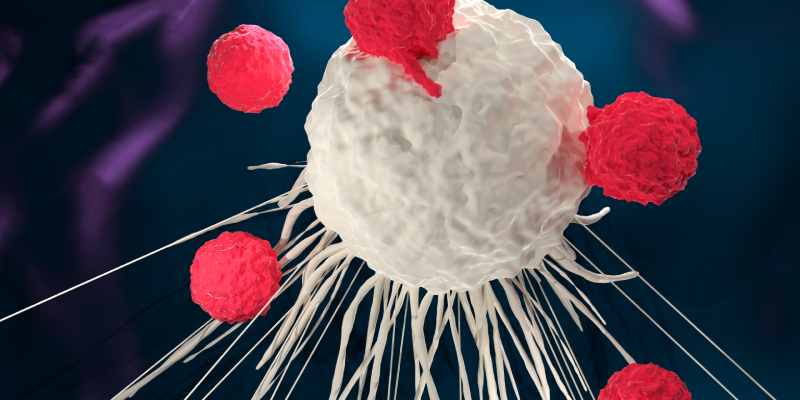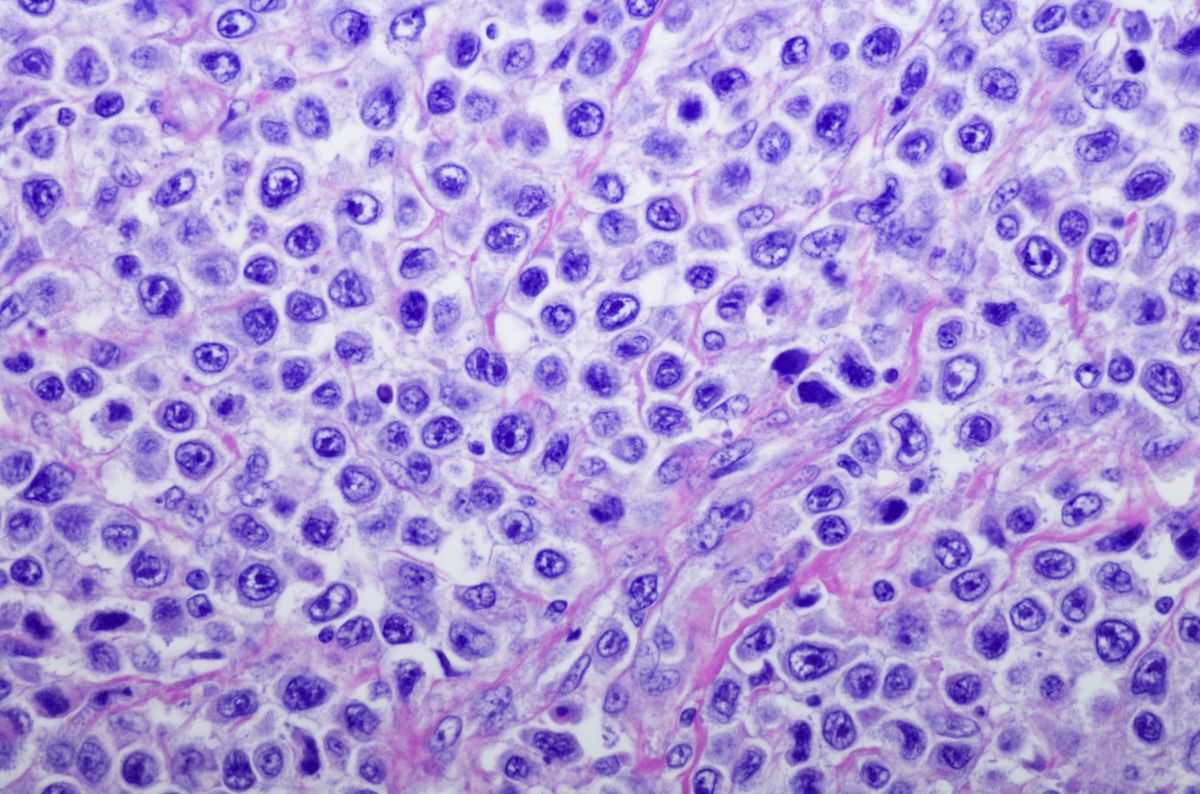
Tisagenlecleucel, a CD19-directed chimeric antigen receptor (CAR) T-cell therapy, demonstrated “durable efficacy and favorable safety” in patients with relapsed/refractory follicular lymphoma, according to long-term data from the phase II ELARA trial.
Catherine Thieblemont, MD, PhD, of Hôpital Saint-Louis in France, and colleagues presented the ELARA trial results during the European Society for Blood and Marrow Transplantation-European Hematology Association Fifth European CAR T-Cell Meeting.
Tisagenlecleucel previously demonstrated “high response rates and an excellent safety profile” in the phase II ELARA trial, according to the investigators, who presented long-term data on safety and response duration at the meeting, as well as findings from exploratory analyses.
The study included 94 eligible patients with relapsed/refractory follicular lymphoma grade 1 to 3a. All received at least two prior lines of therapy, including an anti-CD20 antibody and alkylating agent, or relapsed after autologous hematopoietic stem cell transplantation (HSCT). The investigators permitted bridging chemotherapy. Patients received lymphodepleting chemotherapy, followed by a tisagenlecleucel dose of 0.6 to 6 × 108 CAR+ viable T cells.
Dr. Thieblemont and colleagues assessed the correlation between baseline clinical factors, the tumor microenvironment, blood soluble factors, and circulating cells with clinical response and progression-free survival (PFS).
Long-Term Outcomes in the ELARA Trial
The complete response (CR) rate was 68% at a median follow-up of 28.9 months, with an overall response rate of 86.2%. The medians of PFS, duration of response, time to next treatment, and overall survival (OS) were not reached. The estimated 24-month post-infusion PFS rate was 57.4%, while the estimated 24-month OS rate was 87.7%.
At data cutoff, 61.7% of patients who responded had ongoing responses, while 73.4% of patients with a best overall response of CR had ongoing responses.
Dr. Thieblemont and colleagues reported “high rates of durable responses” in most patients who were in high-risk disease subgroups, including patients with elevated baseline tumor burden or progression of disease within two years, “who typically have poor prognosis with non-CAR-T therapies.”
Lower baseline serum interleukin 10 (IL-10) and TNF-α levels were significantly correlated with lower tumor volume and prolonged PFS (both P<.001) in exploratory analyses. Favorable baseline tumor microenvironment was significantly associated with longer duration of response (not reached vs 12 months; P=.0086) and PFS (median PFS, not reached vs 5.9 months; P=.0017).
“Exploratory biomarker analyses suggest that favorable [tumor microenvironment] and decreased inflammatory status were associated with improved clinical outcomes,” Dr. Thieblemont and colleagues wrote.
The investigators observed persistence of the CAR transgene for up to 925 days, noting “favorable responses” occurred in patients who had progression of disease within two years, “despite lower median in vivo expansion relative” to patients who did not have progression of disease within two years.
Nearly one-quarter (24%) of patients received at least one subsequent therapy after the CAR-T infusion, including four patients who received allogeneic HSCT.
The investigators reported no new safety signals. Neurological events occurred in 12.4% of patients, including in one patient with probable progressive multifocal leukoencephalopathy who had prior grade 4 immune effector cell-associated neurotoxicity syndrome.
A total of 13 deaths occurred in the ELARA trial, including three new deaths that occurred during the longer-term follow-up period, but none of the new deaths were related to treatment, according to Dr. Thieblemont and colleagues.
“Long-term data (>2 years) from following treatment with tisagenlecleucel in the ELARA trial demonstrates durable efficacy and favorable safety in patients with [relapsed/refractory follicular lymphoma]; median [duration of response], PFS, [time to next treatment], and OS were not reached,” Dr. Thieblemont and colleagues concluded. “Most patients with high-risk disease characteristics (e.g., [progression of disease within two years], high tumor burden) also benefitted, with a continued favorable safety profile.”
Reference
Dreyling M, Dickinson M, Martinez-Lopez J, et al. Long-term clinical outcomes and correlative efficacy analyses in patients with relapsed/refractory follicular lymphoma (r/r FL) treated with tisagenlecleucel in the ELARA trial. Presented at the European Society for Blood and Marrow Transplantation-European Hematology Association Fifth European CAR-T cell Meeting; February 9-11, 2023; Rotterdam, Netherlands.






 © 2025 Mashup Media, LLC, a Formedics Property. All Rights Reserved.
© 2025 Mashup Media, LLC, a Formedics Property. All Rights Reserved.